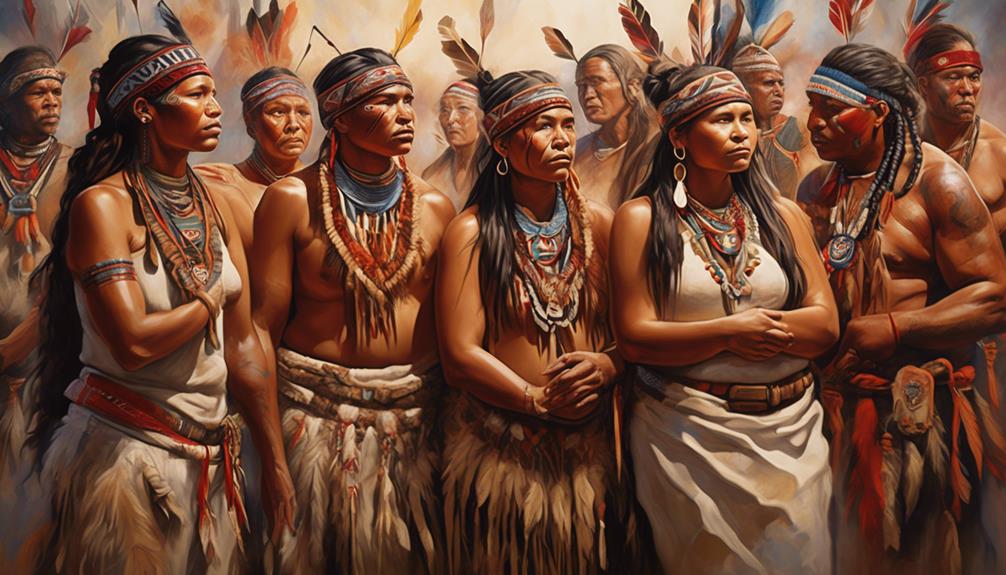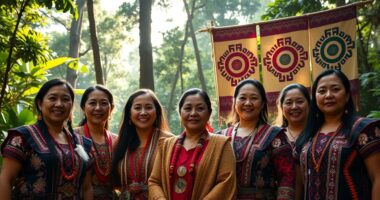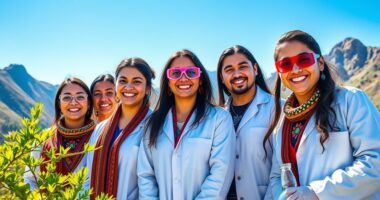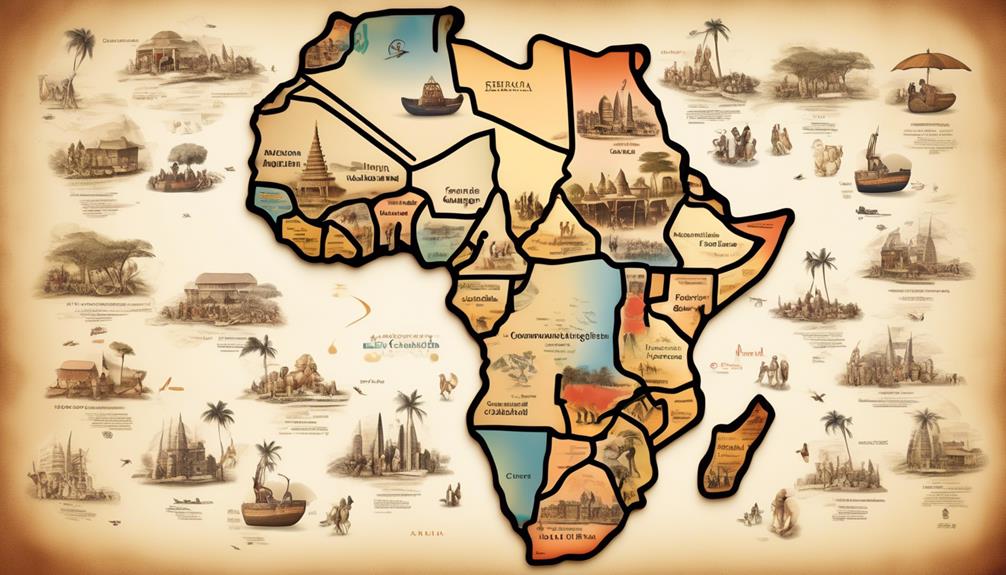As a society, we often overlook the interconnected nature of our histories and the diverse tapestry of cultures that have shaped our world.
Indigenous Peoples Day serves as a poignant reminder of the resilience and strength of Native American communities, offering a window into the complex and often untold narratives of our nation's past.
However, the significance of this day extends far beyond mere recognition. It beckons us to reconsider our understanding of history, prompting us to confront the inaccuracies and omissions that have long permeated our collective consciousness.
Key Takeaways
- Recognition of Native American resilience: Celebrating Indigenous Peoples Day allows us to acknowledge and honor the unwavering determination and resilience of Native American communities in preserving their heritage and traditions.
- Accurate historical representation: By celebrating Indigenous Peoples Day, we can ensure that the true struggles, triumphs, and contributions of indigenous communities are acknowledged and celebrated, fostering a more comprehensive understanding of indigenous history, culture, and traditions.
- Promotion of cultural diversity: Celebrating Indigenous Peoples Day emphasizes the importance of embracing cultural diversity and encourages individuals to learn about and understand different cultural practices and beliefs, fostering a more inclusive and vibrant society.
- Honoring indigenous contributions: Celebrating Indigenous Peoples Day allows us to honor and embrace the deep knowledge, cultural traditions, and sustainable practices of indigenous communities, working towards rectifying past injustices and creating a more equitable future for all.
Recognition of Native American Resilience
Recognizing the remarkable resilience of Native American communities is essential in acknowledging their enduring strength and perseverance in the face of historical and ongoing challenges. Native strength has been demonstrated through centuries of adversity, yet tribal traditions have remained deeply rooted, serving as a source of inspiration and resilience for generations.
Despite enduring a history marred by displacement, discrimination, and attempts to erase their cultural identity, Native American communities have displayed unwavering determination to preserve their heritage and traditions.
Tribal traditions, passed down through oral histories, ceremonies, and artistic expressions, embody the resilience of Native American communities. These traditions serve as a testament to their enduring spirit and offer invaluable insights into their profound connection to the land, their ancestors, and each other. The resilience of Native American communities isn't just a historical narrative but a living testament to the strength and fortitude that continues to shape their collective identity.
Through their resilience, Native American communities haven't only preserved their cultural heritage but also contributed significantly to the diverse tapestry of American society. It's imperative to recognize and celebrate their resilience as a testament to the remarkable strength and endurance of indigenous peoples.
Accurate Historical Representation
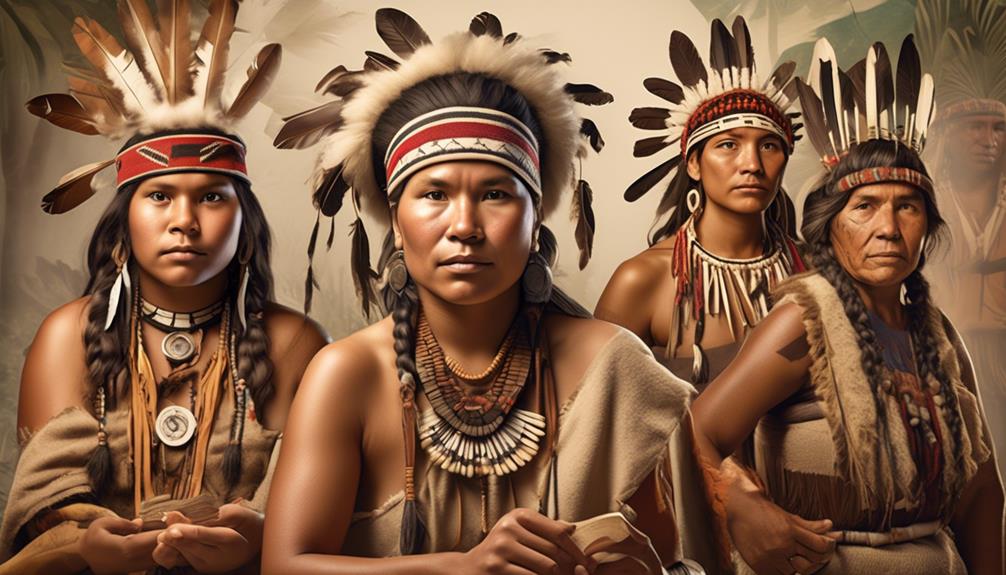
Accurately representing historical events and experiences is essential in honoring the lived realities and narratives of indigenous peoples. Historical accuracy ensures that the true struggles, triumphs, and contributions of indigenous communities are acknowledged and celebrated. It allows for a more comprehensive understanding of the complex and diverse tapestry of indigenous history, culture, and traditions. When we commit to historical accuracy, we reject the perpetuation of harmful stereotypes and misconceptions that have often overshadowed the rich and multifaceted heritage of indigenous peoples.
Cultural appreciation also hinges on accurate historical representation. By presenting history truthfully, we create opportunities for genuine cultural appreciation. When we understand the historical context of indigenous traditions and customs, we can develop a deeper respect for their significance and value. This, in turn, fosters meaningful cross-cultural connections and paves the way for a more inclusive and equitable society.
In essence, striving for historical accuracy in representing indigenous peoples is a fundamental step towards rectifying past injustices and building a future grounded in mutual understanding and respect. It's a commitment to truth, empathy, and the celebration of diverse cultural heritages.
Promotion of Cultural Diversity
Embracing cultural diversity is essential in fostering a more inclusive and vibrant society. Cultural appreciation and diversity awareness are integral to promoting a society where individuals from all backgrounds feel valued and respected. By actively promoting cultural diversity, we can create an environment that celebrates the richness of different traditions, languages, and customs. This not only enhances our understanding of the world but also enriches our daily lives in profound ways.
Here are three key reasons why the promotion of cultural diversity is crucial:
- Fosters Understanding: Embracing cultural diversity encourages individuals to learn about and understand different cultural practices and beliefs. This fosters a sense of empathy and promotes harmonious coexistence within our communities.
- Enriches Creativity: Exposure to diverse cultural influences sparks creativity and innovation. When individuals are exposed to different perspectives and ways of life, it broadens their thinking and inspires new ideas.
- Strengthens Social Cohesion: Actively promoting cultural diversity strengthens social cohesion by creating a sense of unity amidst differences. It encourages collaboration and mutual respect, leading to a more cohesive and resilient society.
Honoring Indigenous Contributions

Indigenous contributions enrich our society through their deep knowledge, cultural traditions, and sustainable practices. These invaluable contributions are rooted in indigenous heritage and encompass a profound understanding of the natural world, traditional healing practices, and sustainable resource management. By honoring and embracing these contributions, we not only recognize the resilience and wisdom of indigenous communities but also pave the way for a more inclusive and equitable society.
Furthermore, honoring indigenous contributions is intricately linked to the pursuit of social justice. It involves acknowledging historical injustices, preserving cultural traditions, and uplifting indigenous voices. By doing so, we actively work towards rectifying past wrongs and creating a more equitable future for all.
Embracing and celebrating indigenous contributions also fosters a more comprehensive understanding of the world around us. It offers diverse perspectives that can enrich fields such as environmental conservation, healthcare, and social governance. By acknowledging the depth and breadth of indigenous contributions, we take a significant step towards creating a society that values and integrates diverse knowledge and traditions.
Challenging Colonial Narratives
Challenging colonial narratives requires us to critically reevaluate historical accounts and confront the biases and misrepresentations that have shaped our understanding of indigenous peoples. Decolonizing education is a vital aspect of this process, as it involves deconstructing the Eurocentric perspectives that have dominated educational curricula and incorporating indigenous knowledge and perspectives. This allows for a more accurate and inclusive portrayal of history, acknowledging the richness and complexity of indigenous cultures and contributions.
Reclaiming heritage is another crucial element in challenging colonial narratives. It involves empowering indigenous communities to assert their cultural identity, language, and traditions that have been suppressed or marginalized by colonial forces. This reaffirmation of heritage not only fosters a sense of pride and belonging within indigenous communities but also challenges the dominant narrative that seeks to diminish their significance.
Promoting diverse and authentic indigenous voices in mainstream media and literature is essential for challenging colonial narratives. By amplifying indigenous perspectives, experiences, and achievements, we can counter the historical misrepresentations and stereotypes that have perpetuated harmful narratives about indigenous peoples. This fosters a more comprehensive and respectful understanding of indigenous histories and cultures.
Frequently Asked Questions
How Can Non-Native Individuals Actively Support and Uplift Indigenous Communities Beyond Just Celebrating Indigenous Peoples Day?
We can actively support and uplift indigenous communities beyond Indigenous Peoples Day by engaging in meaningful advocacy and solidarity efforts. This involves listening to and amplifying indigenous voices, advocating for indigenous rights, and supporting indigenous-led initiatives.
It's important to prioritize empowerment and allyship, recognizing that our actions can have a significant impact on the well-being and rights of indigenous communities.
It's crucial to stand in solidarity and actively work towards a more equitable and just society.
What Are Some Common Misconceptions About Indigenous History and Culture That Need to Be Addressed in Order to Promote Accurate Historical Representation?
We've noticed that misconceptions about indigenous history and culture are as pervasive as dandelions on a summer lawn. These misrepresentations lead to cultural appropriation, historical injustices, and biased representations.
It's crucial for us to actively confront these misconceptions and strive for accurate historical representation. By doing so, we can support indigenous communities and contribute to a more equitable and just society.
What Specific Actions Can Be Taken to Challenge and Dismantle Colonial Narratives and Systems of Oppression That Continue to Impact Indigenous Communities?
To challenge colonial narratives and systems of oppression, we can actively engage in decolonization efforts by advocating for accurate representation of indigenous communities in education, media, and public discourse.
Empowering indigenous voices and supporting their self-determination is crucial. This involves amplifying indigenous perspectives, promoting policies that prioritize indigenous rights, and actively working towards dismantling structures that perpetuate inequality and marginalization.
It's essential for us to actively participate in challenging and dismantling these harmful narratives and systems.
How Can Indigenous Peoples Day Serve as a Platform to Educate People About the Ongoing Struggles and Resilience of Native American Communities in the Face of Historical and Present-Day Challenges?
Indigenous Peoples Day offers an educational platform to highlight indigenous resilience in the face of historical challenges and present-day struggles. It provides an opportunity to raise awareness about the ongoing issues affecting native communities.
In What Ways Can Indigenous Peoples Day Celebrations Contribute to the Preservation and Promotion of Cultural Diversity Within Indigenous Communities and Beyond?
Celebrating Indigenous Peoples Day contributes to cultural preservation and community promotion by honoring Indigenous representation and historical accuracy.
Through celebrations, we can highlight the diverse cultures, traditions, and languages of Indigenous communities, fostering greater understanding and appreciation.
This strengthens the visibility and recognition of Indigenous peoples, promoting cultural diversity and challenging historical misconceptions.
Ultimately, Indigenous Peoples Day celebrations serve as a platform for promoting cultural preservation and fostering a deeper appreciation for Indigenous heritage.
Conclusion
In conclusion, it's time to ditch the outdated Columbus Day and embrace Indigenous Peoples Day.
Let's honor the strength and resilience of Native American communities, challenge colonial narratives, and celebrate the rich cultural diversity and contributions of Indigenous peoples.
It's about time we recognize the true history of this land and show our support for the ongoing struggles and triumphs of Indigenous communities.
Join us in celebrating Indigenous Peoples Day!

